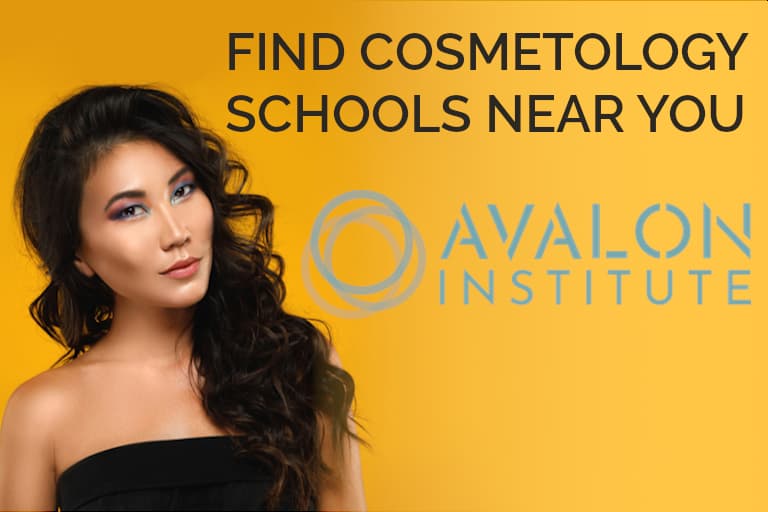Laser Hair Removal School
Laser hair removal has come a long way since its discovery in the early 1960s. Today, it's a safe and popular remedy for those who seek a long-term solution for unwanted hair.
As a career, laser hair removal offers financial rewards and the satisfaction of helping clients. However, it's also a highly regulated profession that often requires specialized training, education, and licensing.
This article explores what it takes to become a laser hair removal specialist. We cover the different methods of training, what to expect in hair removal school, and the key differences between laser hair removal and electrolysis. We also provide insights into career opportunities, unique credentials, and more.
What Will I Learn in Laser Hair Removal School?
The classes you take will vary depending on the state and the type of training you complete. Whatever path you follow, expect to learn a wide variety of skills and all the knowledge necessary to start a career in laser hair removal.
Your state may require you to complete a full esthetics program before you can begin work. In this case, laser education might be included within your wider training, or you may need to complete additional hours to gain laser certification.
You'll combine hands-on training with theoretical study, splitting your time between the classroom and the clinic. Classes will cover various esthetic techniques, such as microdermabrasion, facials, skin detox, micro-needling, and masks.
Safety should be paramount in any clinical setting, so you'll cover a variety of regulatory practices, compliance, and proper maintenance to ensure your equipment and working area are optimal. You'll also learn about protective eyewear, sanitation, and how to assess your clients to offer the best treatments.
There's more than one type of laser involved in hair removal, and you'll likely cover them all, from ruby and alexandrite, to diode and IPL lasers, along with the delivery systems. You'll also delve into the physics behind how lasers prevent hair growth.
In-depth programs will also offer marketing, business skills, technology, and entrepreneurship classes. Since many laser hair removal technicians work in healthcare settings, you might also receive training on applying these skills in a medical environment.

sponsored content, school availability varies by location

sponsored content, school availability varies by location

sponsored content, school availability varies by location

sponsored content, school availability varies by location

sponsored content, school availability varies by location

sponsored content, school availability varies by location
Where Do I Learn to Become a Laser Hair Removal Specialist?
The type of training you need to become a laser hair removal specialist varies from state to state. Some require a specific license from a state-approved laser hair removal school. In contrast, others include the technique within general esthetics license training.
Do I Need a License to Be a Laser Hair Removal Specialist?
The training needed to become a laser hair removal specialist varies from state to state. However, almost all will have standard requirements, such as being at least 18 years old and having a high school diploma (or equivalent). In many areas, laser hair removal is included within esthetics license training.
Some states, such as Alaska, don't require any specific training. Instead, laser technology for hair removal is restricted to businesses with a medical director on staff—though they don't have to be on-site while procedures are being performed.
Other states have more stringent rules. For example, in Florida, all laser hair removal specialists must hold a valid electrolysis license with at least 320 hours of training. Laser hair removal is even more tightly regulated in Indiana, where it's classed as a medical procedure and can only be performed by licensed physicians.
READ MORE: Learn More About Laser Hair Removal Licensure
Laser Hair Removal Certifications
Even if your state doesn't require specific licensing or credentials, ensuring you're certified can help you stand out above your peers and show you can offer your clients a safe, effective service.
There are several dedicated hair removal programs available from nationally-recognized bodies. The Society for Clinical and Medical Hair Removal offers a Certified Laser Hair Removal Professional certification, and the American Electrology Association offers the Certified Professional Electrologist credential. Both are held in high regard across the hair removal industry.
Can I Apprentice Instead of Going to Laser Hair Removal School?
Yes, in some states, you can train to be a laser hair removal specialist through an apprenticeship scheme.
In Texas, for example, you can start your journey to become a laser hair tech after just 40 hours of learning through its Apprentice-in-Training certificate. Once you've performed 100 supervised laser hair removal procedures, you can apply for a full technician's certification.
Understanding Laser Hair Removal vs. Electrolysis
While laser hair removal and electrolysis (or electrology) might seem similar, they aren't the same. Both are popular methods for long-term hair removal, but they differ in several areas—including the technology involved, their effectiveness, training requirements, and more.
Laser hair removal uses concentrated beams of light to target and destroy hair follicles. As the laser is pulsed over the skin, its focused heat damages the follicles, inhibiting or delaying future hair growth. The heat is attracted to the pigment in your client's hair, so it works best on paler skin tones and darker hair colors.
Electrolysis, on the other hand, involves inserting a thin wire directly into each hair follicle under the skin's surface. An electric current moves down the wire to the bottom of the follicle, destroying the hair root and preventing it from growing. Unlike laser hair removal, it doesn't matter what skin tone the client has or what color their hair is.
READ MORE: Learn More About Electrolysis
Laser hair removal is usually done over multiple sessions, repeatedly going over the same areas to damage the follicles and kill the hair roots. Even then, the hair can grow back over time, and future sessions might be needed to maintain the results. It can be slightly uncomfortable, and in some cases, it can cause redness and swelling.
Electrolysis is the only FDA-approved method for permanent hair removal. It can completely stop hair growth but may require more sessions. Because of this, it's also usually more expensive than laser hair removal in the long term. On the upside, the treatments tend to be more comfortable than laser, with less risk of side effects.
In terms of training, electrolysis typically requires more in-depth learning than laser hair removal. However, the specifics vary greatly from state to state. Read our guide to getting your license for up-to-date information for your area.
READ MORE: Learn More About Electrolysis Licensing
Where Laser Hair Removal Specialists Work
Once qualified, laser hair removal specialists have plenty of career options available. Many feel most at home in spas and salons, working in relaxing, client-focused environments. They might offer hair removal alongside other treatments such as manicures, facials, or massage—as long as their training and local law allow it.
Others prefer to work in more clinical environments, such as medspas, dermatology offices, or plastic surgery clinics. In these settings, laser specialists often collaborate closely with medical professionals as part of a broader range of cosmetic offerings.
READ MORE: Learn More About Laser Hair Removal Careers
Laser Hair Removal Schools Near Me
- Alabama
- Alaska
- Arizona
- Arkansas
- California
- Colorado
- Connecticut
- Delaware
- D.C.
- Florida
- Georgia
- Hawaii
- Idaho
- Illinois
- Indiana
- Iowa
- Kansas
- Kentucky
- Louisiana
- Maine
- Maryland
- Massachusetts
- Michigan
- Minnesota
- Mississippi
- Missouri
- Montana
- Nebraska
- Nevada
- New Hampshire
- New Jersey
- New Mexico
- New York
- North Carolina
- North Dakota
- Ohio
- Oklahoma
- Oregon
- Pennsylvania
- Rhode Island
- South Carolina
- South Dakota
- Tennessee
- Texas
- Utah
- Vermont
- Virginia
- Washington
- West Virginia
- Wisconsin
- Wyoming